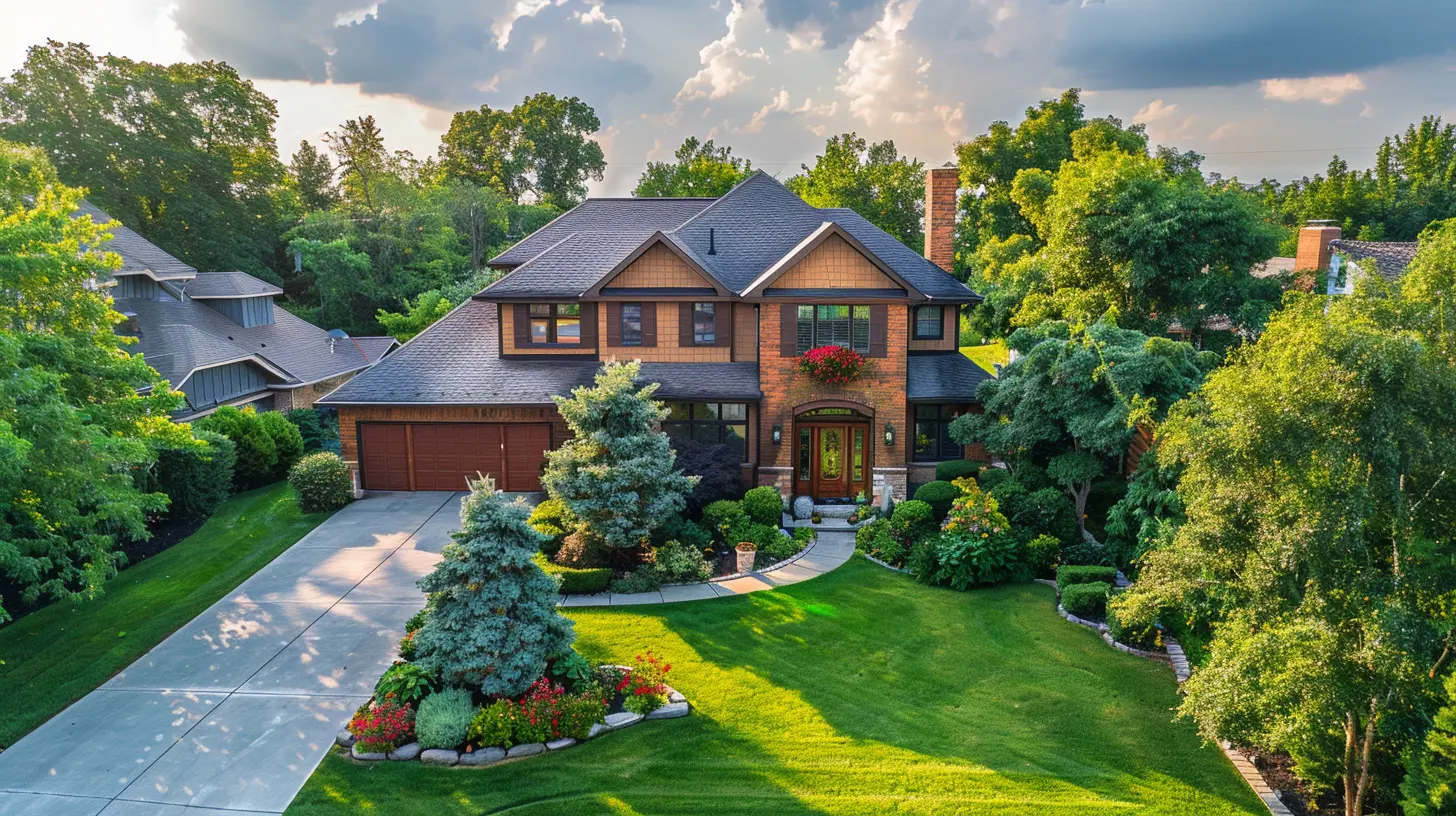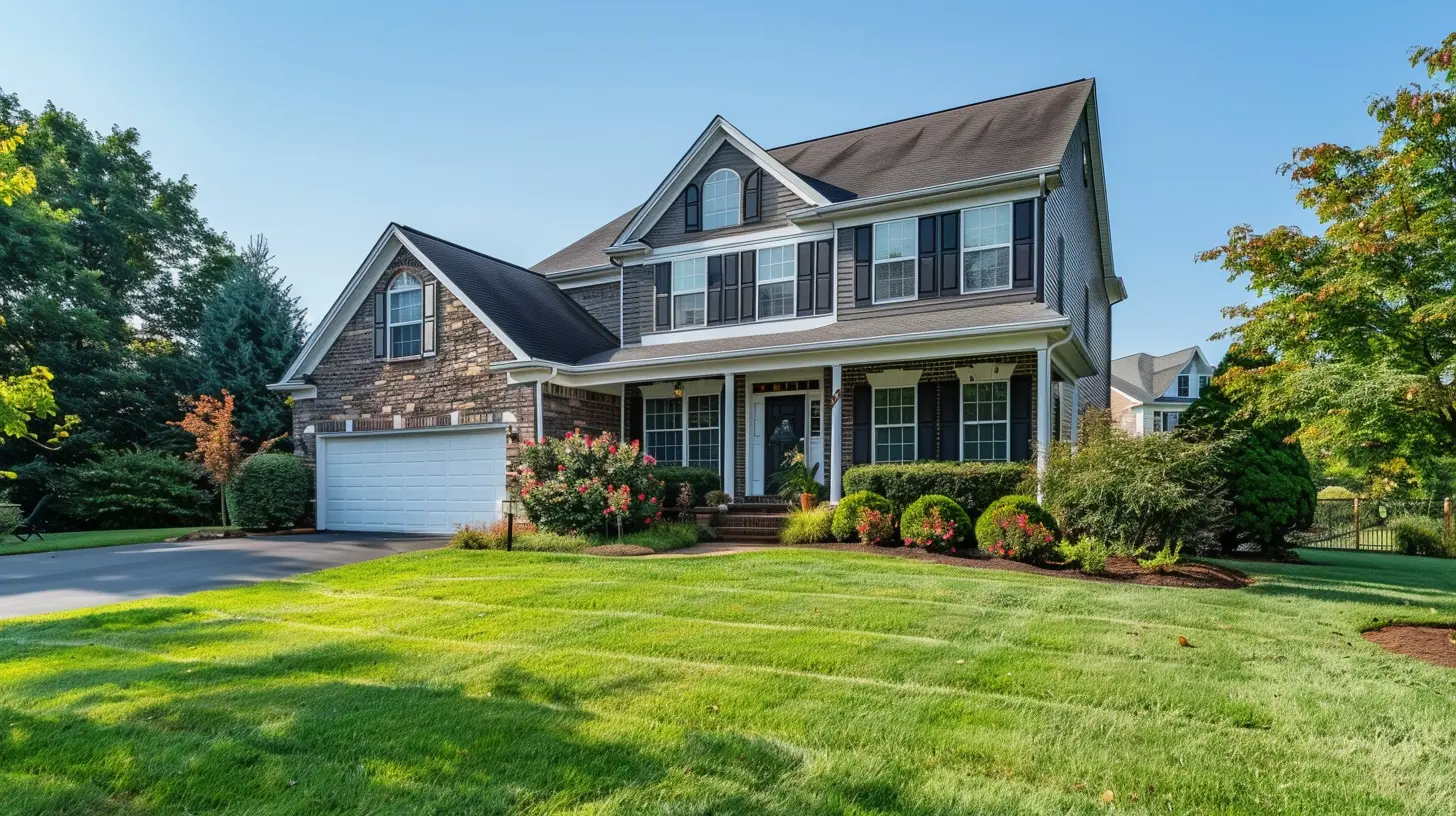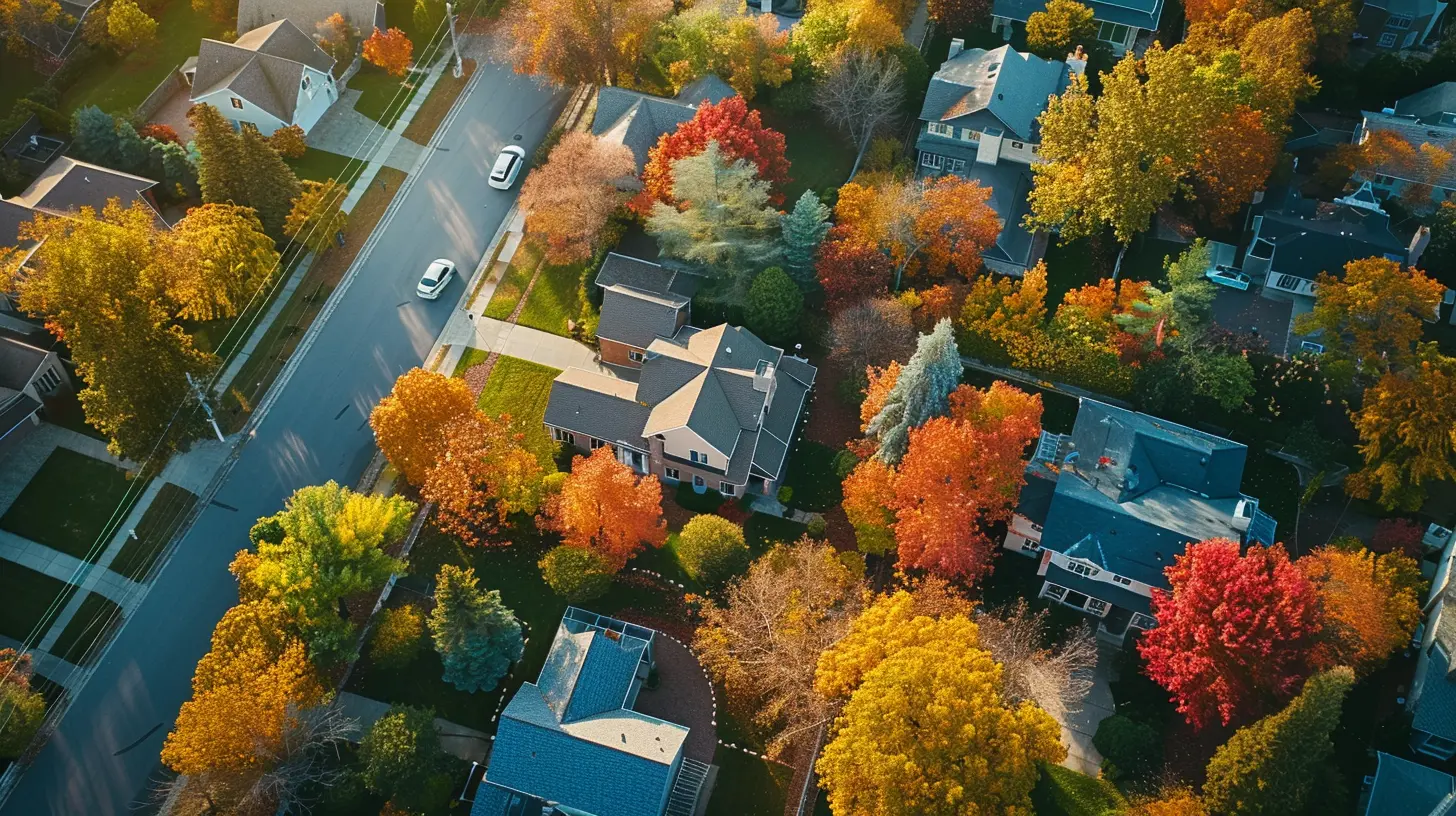When is the Best Time to Buy a Suburban Home?
18 January 2025
Thinking about trading the hustle and bustle of the city for the peaceful charm of the suburbs? Maybe you're picturing a place where the kids can ride bikes down tree-lined streets or where you can sip coffee on a spacious patio overlooking your backyard. Whatever your motivation, you’re probably wondering: When is the best time to buy a suburban home?
Good news: you’re not alone in asking this question. The timing of a home purchase can make quite the difference—not just in terms of price but also in terms of availability, competition, and overall experience. In this post, we’ll dive deep into the factors, trends, and market insights that can help you determine the sweet spot for buying a suburban home. Ready? Let’s break it down.
Why Timing Matters in the Real Estate Market
You might be thinking, “Does it really matter when I buy a house? I just need a home that fits my needs.” Well, yes, it does matter. The real estate market is heavily influenced by supply and demand, which changes throughout the year. Buying during the "right" time can save you money, reduce competition, and make the entire process a whole lot smoother.Think of the housing market like the seasons: each period comes with its own personality. Just as you wouldn’t wear a winter jacket in the middle of July, you don’t want to dive into the housing market at a time that doesn’t suit your goals. So, let’s explore the prime times to buy that dreamy suburban retreat you’ve been eyeing.
The Best Time of Year to Buy a Suburban Home
1. Spring: A Double-Edged Sword in the Housing Market
Spring is known as the "Super Bowl" of real estate. Flowers are blooming, the weather is friendlier, and homeowners are eager to list their properties. Why? Families want to sell before summer so they can relocate and settle in before the next school year begins.If you're looking for variety, spring is ideal. Suburban areas often see more listings pop up during this time of year, giving you a buffet of options to choose from. But here’s the catch: you won’t be the only buyer shopping. Competition can get fierce—think of it like a Black Friday sale where everyone wants the same TV. With bidding wars and higher demand, you might end up paying more than you hoped.
The Verdict: If you have specific criteria for your suburban dream home and don’t mind stretching your budget, spring offers the most inventory.
2. Summer: More Choices, But at a Cost
Summer is an extension of the spring real estate frenzy. Families are still heavily active in the market, and more first-time buyers are stepping in since vacation time makes house-hunting convenient. The sun is shining, and suburban neighborhoods have never looked more inviting.The downside? Prices often peak in the summer. If you’re shopping in a popular suburb, you might face stiff competition, and sellers are less likely to negotiate because they know someone else will be willing to pay top dollar. Plus, moving during the hot summer months? Sweaty business—literally.
The Verdict: Summer is great if you value availability and are willing to pay for it. But if you’re on a tight budget, it might not be your best bet.
3. Fall: The Underrated Sweet Spot?
Ah, fall. The temperature is cooling, the leaves are turning, and the real estate market starts to calm down. By this time, sellers whose homes didn’t sell during the summer may be feeling the pressure to close a deal before the holidays.Translation? You might have some room to negotiate. Fewer buyers are actively house-hunting during fall, so you’re less likely to face bidding wars. Plus, moving in cooler weather? So much nicer than sweating through a July heatwave.
The only downside? There’s typically less inventory to choose from, so you may need to compromise a bit on your "must-have" list.
The Verdict: Fall strikes a balance between affordability and competition. If you’re flexible and patient, it could be your golden window.
4. Winter: The Buyer’s Wonderland
Winter is traditionally the slowest season in real estate. Many sellers pull their listings off the market to focus on the holidays, and the cold weather makes house-hunting less appealing. However, if you’re serious about buying, that’s exactly what makes this season a hidden gem.Fewer buyers mean less competition, and sellers who are listing in winter tend to be serious about selling—they’re not just testing the market. This can work to your advantage when it comes to negotiating. And who doesn’t love a good deal during the holiday season?
On the flip side, the selection might be smaller, and if you’re buying in snowy climates, it can be harder to fully appreciate a home’s exterior or yard.
The Verdict: If scoring a bargain is your top priority, winter is your time to shine. Just be prepared for fewer options and potentially icy moving conditions.
Other Key Factors That Influence the Timing
While the seasons play a big role, there are other factors to keep in mind when deciding when to buy a suburban home.1. Personal Circumstances
Timing isn’t just about market trends; it’s also about your own situation. Are you financially ready? Do you need to move soon or have the flexibility to wait? Life events like job changes, growing families, or simply wanting more space often dictate the "right time" for you, regardless of the season.2. Interest Rates
Mortgage rates can significantly impact your buying power. Lower rates mean you can afford more home for the same monthly payment. Stay informed about economic trends and consider locking in a rate when they’re favorable.3. Local Market Conditions
Suburban areas are all unique. Some suburbs are red-hot year-round, while others follow seasonal trends more closely. Research your target area, talk to realtors, and monitor local market activity before making a decision.
Pro Tips for Scoring the Best Deal
- Be Prepared: Have your mortgage pre-approval ready before you start shopping. This shows sellers you’re serious.- Work with a Realtor: A local agent can offer valuable insights about the timing and trends in your specific suburb.
- Stay Flexible: If you’re not set on a specific season, you can take advantage of opportunities as they arise.
- Consider Off-Peak Times: Midweek showings or making an offer during the holidays can give you an edge over less flexible buyers.
Final Thoughts
So, when is the best time to buy a suburban home? The answer depends on what matters most to you. If you crave variety and don’t mind competition, spring and summer will fit the bill. If you’re hunting for a deal and want a smoother process, fall and winter might be your new best friends.Regardless of the season, buying a home is a deeply personal decision that blends timing, finances, and lifestyle. Do your research, trust your gut, and most importantly—enjoy the journey. After all, finding the perfect suburban home is like finding the perfect pair of shoes: it’s all about what feels right for you.
all images in this post were generated using AI tools
Category:
Suburban HomesAuthor:

Vincent Clayton
Discussion
rate this article
19 comments
Taryn Velez
Great insights on timing the suburban home market! Understanding seasonal trends and personal circumstances is crucial for making informed decisions. Your analysis highlights the importance of balancing market conditions with individual readiness, which can ultimately lead to a successful home-buying experience. Thank you for sharing!
March 30, 2025 at 4:16 AM

Vincent Clayton
Thank you for your thoughtful comment! I'm glad you found the insights helpful in navigating the suburban home market. Happy house hunting!
Everett McTavish
As the seasons shift, so do opportunities. Discover the hidden signals in the market that may reveal the perfect moment to unlock your suburban dream—before it disappears.
March 25, 2025 at 1:39 PM

Vincent Clayton
Absolutely! Timing the market can uncover great opportunities in suburban home buying. Stay alert to trends and signals!
Parisa McGehee
Great insights! Timing is crucial in real estate, and your tips are very helpful. Thank you!
February 13, 2025 at 1:33 PM

Vincent Clayton
Thank you for your kind words! I'm glad you found the tips helpful. Happy house hunting!
Gunner Hahn
Great insights in this article! Timing the suburban home market can be tricky, but remember that the best time to buy is when you're ready—financially and personally. Stay informed, trust your instincts, and seize opportunities. Your dream home could be just around the corner!
February 3, 2025 at 12:51 PM

Vincent Clayton
Thank you! I completely agree—personal readiness and financial stability are key when navigating the suburban home market. Staying informed and trusting your instincts can lead to finding that perfect dream home.
Elowyn McAndrews
In spring's gentle bloom or autumn's golden grace, the suburban dream awaits its place. Timing whispers softly, a dance of heart and home—find your perfect space.
January 31, 2025 at 9:41 PM

Vincent Clayton
Thank you for your poetic reflection! Indeed, timing plays a crucial role in finding the perfect suburban home.
Eva Newman
Buying a suburban home is like finding the perfect pair of shoes—timing is key! Whether it’s spring blooms or cozy winter vibes, trust your instincts. Your dream home is waiting just around the corner!
January 28, 2025 at 5:12 AM

Vincent Clayton
Absolutely! Just like shoes, the right timing makes all the difference in finding your dream home. Great analogy!
Harper McNeely
Great insights! Timing the real estate market can be tricky, but your advice on considering personal circumstances alongside market trends is spot on. It’s all about finding the right fit for your life and needs. Remember, a home is more than an investment—it's where memories are built. Happy house hunting!
January 25, 2025 at 1:44 PM

Vincent Clayton
Thank you! I'm glad you found the insights helpful. You're absolutely right—finding the right fit for your life is key. Happy house hunting!
Tobias McCloud
Buying a home is a significant decision; consider your needs and timing carefully for peace of mind.
January 24, 2025 at 8:44 PM

Vincent Clayton
Absolutely! Taking the time to assess your needs and timing can lead to a more fulfilling home-buying experience. It's all about finding the right balance for your situation.
Thor McRae
In the dance of seasons, when whispers of spring awaken, the suburban dream blooms. Timing, like a heartbeat, syncs with your desire—where roots can intertwine and laughter echoes in sunlit halls. Find your moment, let home embrace you.
January 24, 2025 at 6:05 AM

Vincent Clayton
Thank you! Beautifully expressed! Spring truly is a magical time to find your perfect suburban home.
Colton McMillen
The best time to buy a suburban home is when you’re financially ready and the market conditions suit your goals. Timing is key, but personal circumstances and long-term vision should always take precedence. Make informed decisions!
January 23, 2025 at 7:35 PM

Vincent Clayton
Thank you for your insightful comment! I completely agree that personal readiness and informed decision-making are crucial in the home-buying process.
Molly Kirkpatrick
Seize the opportunity! The best time to buy a suburban home is when you're ready to invest in your future!
January 23, 2025 at 12:36 PM

Vincent Clayton
Absolutely! Timing is key, and being ready is what truly matters. Invest in your future when it feels right for you!
Wolf McNulty
Timing is everything! Embrace the opportunity to invest in a suburban home when the market aligns with your dreams. Create your future in a community that nurtures growth and happiness!
January 22, 2025 at 9:49 PM

Vincent Clayton
Absolutely! Timing and community play crucial roles in making the right investment. Embracing the opportunity can lead to a fulfilling future.
Josie Sharp
Buying a suburban home? Timing matters, but don’t overthink it! If you find your dream home at the right price, go for it! Life’s too short to wait for ‘perfect’ conditions—make your move and enjoy those spacious backyards and quiet streets!
January 21, 2025 at 1:21 PM

Vincent Clayton
Absolutely! While timing is important, finding the right home is key. Don’t hesitate—embrace the lifestyle that comes with suburban living!
Seraphis Phillips
Spring offers the best deals!
January 21, 2025 at 5:06 AM

Vincent Clayton
Absolutely! Spring often brings increased inventory and competitive pricing, making it a great time to find deals on suburban homes.
Antonia Phelps
This article highlights crucial factors in deciding when to buy a suburban home. Personal circumstances, market trends, and seasonal patterns all play a role. Reflecting on my own experiences, I realize that aligning my financial readiness with market conditions is key. Patience and research truly pay off in real estate.
January 20, 2025 at 9:59 PM

Vincent Clayton
Thank you for your insights! It's great to hear that your experiences underscore the importance of financial readiness and thorough research in making informed real estate decisions.
Arden McClure
Buying a suburban home is like dating—timing is crucial! Aim for when the market isn’t swiping right on prices, but your heart is all in!
January 19, 2025 at 9:41 PM

Vincent Clayton
Absolutely! Timing is key in both dating and homebuying—waiting for the right market moment can lead to a happier investment!
Vivian Sharpe
Great read! Timing is everything in real estate, and understanding the suburban market can really make a difference. I love how you highlighted seasonal trends and local factors—definitely valuable insights for homebuyers looking to make the most of their investment!
January 18, 2025 at 9:05 PM

Vincent Clayton
Thank you for your thoughtful comment! I'm glad you found the insights on timing and local trends valuable. Happy house hunting!
Leona Ramos
This article raises intriguing points about timing in the suburban housing market! I’m curious about how seasonal trends and local economic factors play a role. Has anyone found surprising insights about timing their purchase successfully?
January 18, 2025 at 11:53 AM

Vincent Clayton
Thank you for your comment! Seasonal trends and local economic conditions can significantly impact the suburban housing market. Many buyers find success by timing their purchases during off-peak seasons when inventory is higher and competition is lower. Engaging with local market insights can yield surprising advantages!
Harlow Lambert
Buying a suburban home is like catching a wave—timing is everything! The best moment often hinges on market trends, personal readiness, and lifestyle shifts. Keep an eye on seasonal patterns and interest rates, but don’t forget: your ideal timing aligns with your unique needs and aspirations. Ride the wave wisely!
January 18, 2025 at 5:57 AM

Vincent Clayton
Great analogy! Timing is indeed crucial, but personal circumstances also play a key role in making the right decision. Thank you for highlighting that balance!
MORE POSTS

Selling a Historic Home: Unique Challenges and Benefits

Reverse Mortgages: A Guide to Fees and Costs

Buyer’s Market Dynamics Explained: What Every Home Buyer Should Know

Exploring Affordable Housing Options in Urban Areas

Building Wealth by Investing in a Buyer’s Market

House Hunting Red Flags to Watch Out For

What You Need to Know About Rent-to-Own Affordable Housing

Preparing Your Home for an Open House: A Comprehensive Guide

Why Now Might Be the Best Time to Buy a Home

How to Minimize Risk in Real Estate Investments

Planning for Property Taxes in Retirement

Seller Financing: A Win-Win for Buyers and Sellers?